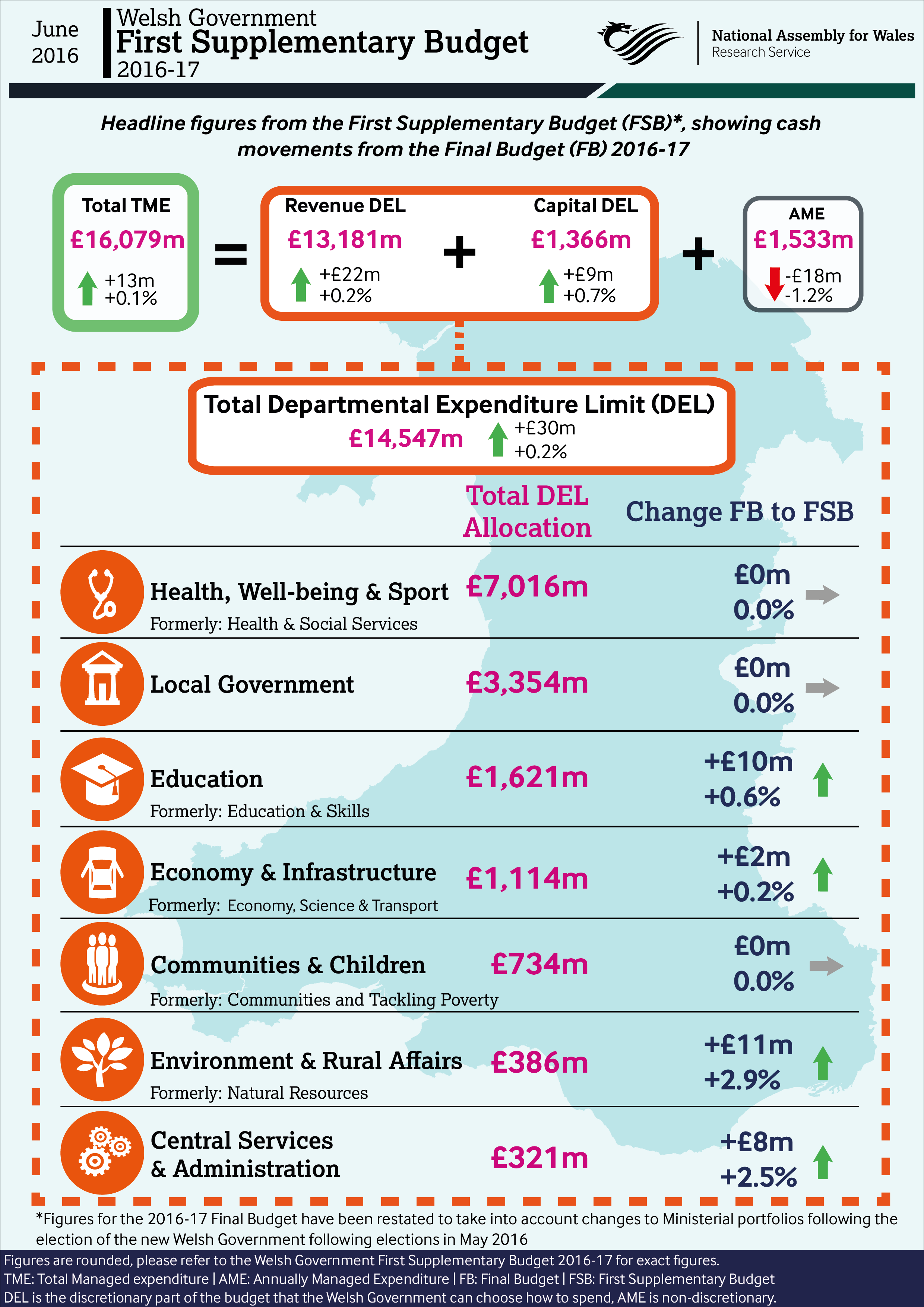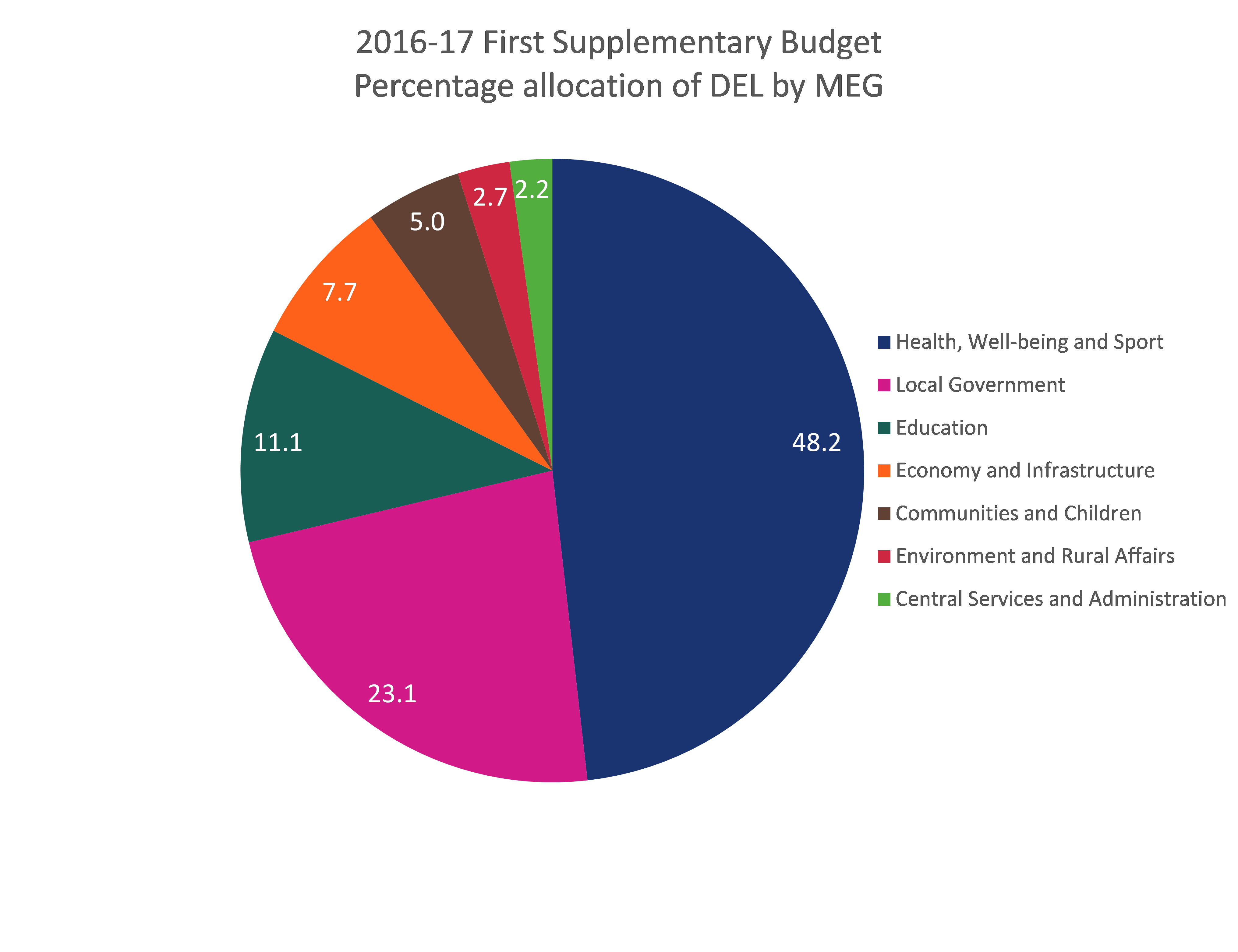The Assembly will be debating the Welsh Government’s First Supplementary Budget 2016-17 in Plenary on 12 July. This blog article sets out background information on the supplementary budget, and the work of the Assembly’s Finance Committee to scrutinise the allocations made in it. The Finance Committee took oral evidence from the Cabinet Secretary for Finance and Local Government on the changes in the supplementary budget, and has produced a report including recommendations to the Cabinet Secretary.
The First Supplementary Budget 2016-17
The main purpose of this supplementary budget is a restructure to reflect the Ministerial portfolio changes of the new Welsh Government. Our earlier blog article from June 2016 sets out details of the additional allocations made in the supplementary budget.
The Cabinet Secretary for Finance and Local Government (Mark Drakeford AM) laid the supplementary budget on 21 June 2016. This was accompanied by an explanatory note and tables showing departmental allocations. The infographic and pie chart below set out the headline figures from the supplementary budget.


Source: Research Service calculations from Welsh Government, First Supplementary Budget 2016-17
Finance Committee’s report scrutinising the supplementary budget
The Finance Committee took evidence from the Cabinet Secretary on 28 June. It made four recommendations to the Welsh Government in its report. These are based on the main areas discussed with the Cabinet Secretary, and cover the following areas:
- Election costs: The £7.7 million allocated to cover the cost of the Assembly elections held in May 2016 were lower than those for the previous election held in 2011, in part due to cost sharing with the UK Government Home Office relating to the Police and Crime Commissioner elections held on the same day. The Committee recommended that the Welsh Government continue to take up such opportunities to minimise costs of elections to the taxpayer.
- Port Talbot Waterfront Enterprise Zone: The Committee noted the allocation of £1.5 million in the budget to a business rate relief scheme for the Port Talbot Waterfront Enterprise Zone. The Committee has recommended that in future the Welsh Government publishes greater evidence setting out the rationale behind budget allocations such as the business rate relief scheme, including details of the anticipated economic impact.
- Budget transparency: The Committee has recommended that the Cabinet Secretary presents information to ensure that it is possible to track allocations to departments and major projects over the course of this Assembly term. This should include enabling comparisons to be made when the portfolios of Cabinet Secretaries change.
- Future changes to the Welsh Government’s budget: On 28 June, the Chancellor of the Exchequer expressed the view there was a need for the new Prime Minister to implement both tax rises and further spending cuts. Consequently, the Committee has recommended that the Cabinet Secretary keeps the Committee informed of discussions with the UK Treasury on any decisions that may result in changes to the Welsh Government’s budget in the coming months.
Article by Gareth Thomas and David Millett, National Assembly for Wales Research Service




